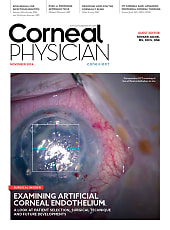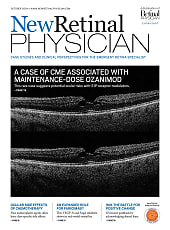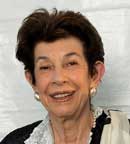At the Glaucoma Foundation’s 2025 Scientific Think Tank, held June 20-21 in New York City, leading researchers, clinicians, and patients confronted one of the field’s biggest challenges: how to transform massive amounts of siloed data into meaningful insights that can improve patient care. This year’s theme, “The Future of Glaucoma: Harnessing Data, AI, and Precision Medicine for Patient-Centered Care,” reflected growing urgency to unify and standardize data in an era of technological promise and complexity.
Established in 1995, the Think Tank is a longstanding interdisciplinary forum aimed at sparking collaboration and new ideas across scientific and clinical domains. Sixty participants attended in person, with another 100 joining virtually via a virtual meeting platform. Speakers represented institutions including Columbia, Harvard, Mount Sinai, Johns Hopkins, UC Davis, UC San Diego, Michigan, Miami, Baylor, and Microsoft.

Think Tank organizer Louis R. Pasquale, MD, professor of ophthalmology at the Icahn School of Medicine at Mount Sinai and chair of the department of ophthalmology at Mount Sinai Hospital, underscored the challenge. “AI presents a great opportunity to leverage the wealth of data available on glaucoma patients, but we have yet to translate that data into a better understanding of the disease or its treatment,” he noted. Dr. Pasquale’s presentation focused on creating a multiomic framework for glaucoma.
Opening speaker James David Brandt, MD, a glaucoma specialist, professor in the department of ophthalmology and vision science at the University of California-Davis, and director of the Glaucoma Service at UC Davis Health, described the fragmentation of glaucoma data as “crucial data hidden in plain sight,” spread across systems in ways that prevent clinicians from connecting the dots in real time.
On the first day of the meeting, sessions addressed data integration, the impact of AI on glaucoma diagnosis and surgery, inclusive genomic data sets, and the use of AI in clinical trials. Sally L. Baxter, MD, MSc, assistant professor of ophthalmology and biomedical informatics at the University of California San Diego, reviewed routine data elements used in glaucoma management—such as IOP, visual fields, and optic nerve imaging—and discussed the need for integration strategies tailored to real-world clinical workflows.

The second day began with a lecture by Michael F. Chiang, MD, director of the National Eye Institute (NEI), titled “Vistas to Data Integration in Ophthalmology.” He highlighted NEI initiatives in imaging, AI, data standards, and team science designed to address the technical and institutional barriers to effective data use.
Following Dr. Chiang’s talk, a panel discussion considered some key questions, including:
- Why are there still no standard definitions for glaucoma in 2025?
- How can NIH and others promote interoperability in glaucoma imaging and EHRs?
- Can new models of collaborative knowledge synthesis improve discovery and care?
Panelists reached a broad consensus on the need for universal disease definitions and for collecting data in a standardized, DICOM-compatible format. Intraocular pressure (IOP) was cited as a particularly “noisy” data set—affected by variations in device type, technique, and operator—despite its routine presence in medical records.
Although DICOM standards exist for most ocular imaging devices, adoption remains low. Meanwhile, the sheer volume of published data continues to outpace the community’s ability to synthesize and apply it, reinforcing the importance of AI and precision medicine—but only if supported by clear standards and definitions.

The final session focused on the glaucoma patient perspective. Aakriti Shukla MD, MSc, an associate professor of ophthalmology at Columbia University Medical Center and attending ophthalmologist at New York Presbyterian Hospital, introduced the concept of glaucoma coaching, a growing approach that shifts the clinical conversation toward behavior change, motivation, and goal setting. Two patients—one of whom now serves as a professional glaucoma coach—then shared their personal experiences.
Elena Sturman, president and CEO of the Glaucoma Foundation, closed the meeting by thanking participants and sponsors. “By encouraging new strategies and innovative insights into the challenges of glaucoma at this forum, TGF continues to spearhead the multidisciplinary campaign to eradicate blindness from glaucoma,” she said.
Recordings of many of the sessions are available on the Glaucoma Foundation’s YouTube channel. GP









